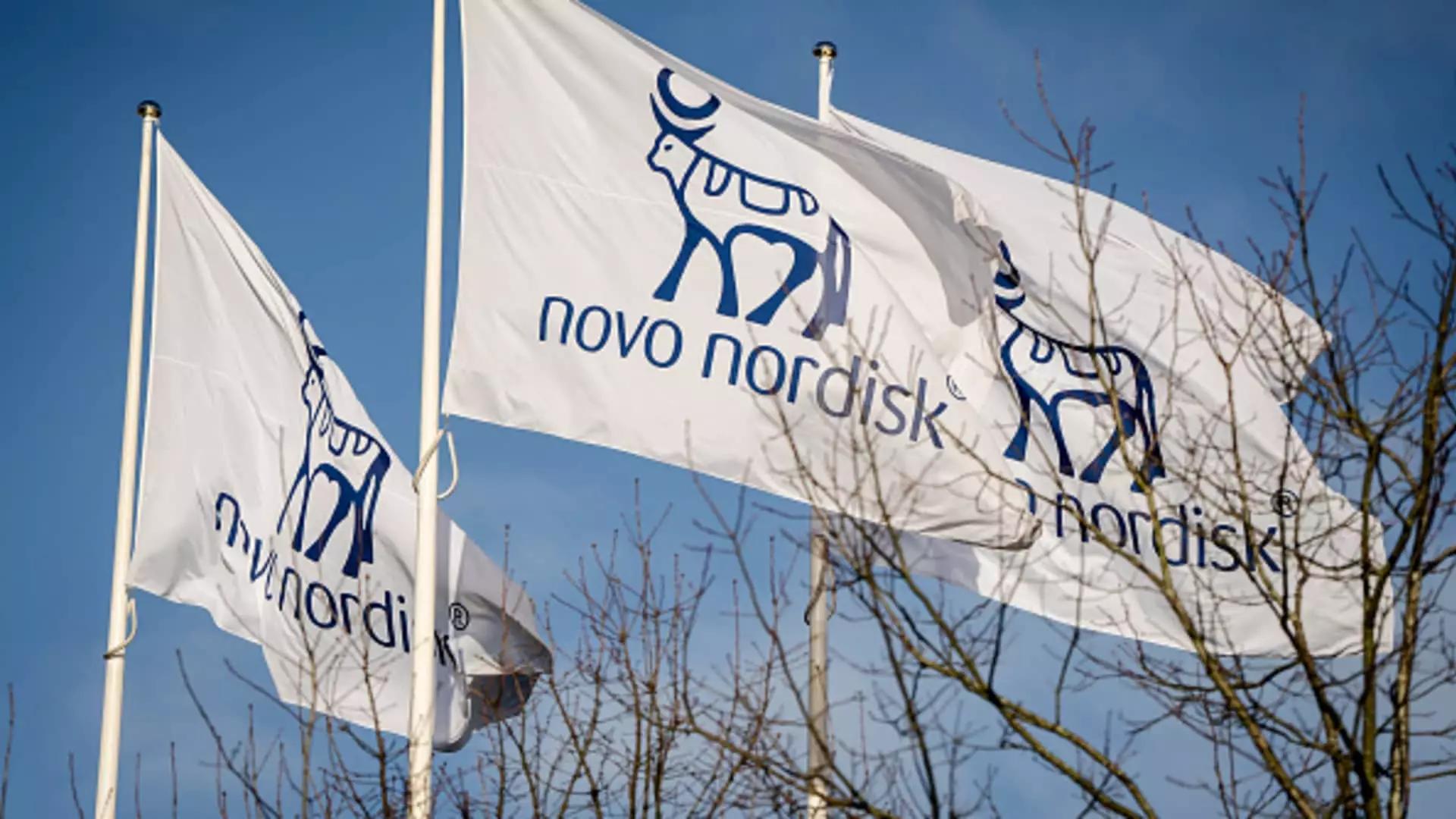In a paradigm-shifting announcement, Novo Nordisk revealed that its diabetes pill, Rybelsus, embodies remarkable cardiovascular benefits during a late-stage clinical trial. This revelation could mark a watershed moment in diabetes management, particularly for patients grappling with concurrent heart conditions. With a significant 14% reduction in the risk of cardiovascular-related deaths, heart attacks, and strokes, the potential of Rybelsus is more than promising; it is exhilarating. Presenting these results at the American College of Cardiology’s Annual Scientific Session in Chicago not only illustrates the commitment of Novo Nordisk to innovate but also highlights the evolving landscape of diabetes treatment options.
Rybelsus, an oral formulation of the established injectable drug Ozempic, stands out in a field dominated by injections. This pill has the capacity to change the game for those who fear needles, offering a more palatable and accessible treatment route. We must question: what does this mean for diabetes patients who have been solely reliant on injections, often facing both physiological and psychological barriers?
The Real Impact on Cardiovascular Health
Diving deeper into the clinical data, the results painted a picture of hope amid the chronic ravages of diabetes. Approximately 12% of Rybelsus users experienced major cardiovascular events compared to 13.8% in the placebo group. This data is noteworthy not only in numbers but also in real life, where such reductions can translate into saved lives and improved quality of life. The fact that Rybelsus has demonstrated similar cardiovascular benefits consistent with previous trials of injectable GLP-1s strengthens its case and positions it comfortably within the current pharmacological arsenal.
Critics might argue that the biochemical mechanisms at play are still not fully understood, and some could lament the fact that the study did not extensively target kidney function. Nonetheless, Rybelsus’s impact on heart attacks and strokes makes it imperative for healthcare professionals to consider this drug as a serious contender in the therapeutic landscape of diabetes.
The Need for More Options in Treatment
Another critical angle in the conversation about Rybelsus lies in patient preference. “We know not everybody wants an injection,” stated Stephen Gough, Novo Nordisk’s Chief Medical Officer. This statement captures the essence of healthcare: it must personalize and respond to individual needs. The psychological barriers associated with needle-based therapies can deter patients from adhering to treatment regimens. By introducing an oral option, Novo Nordisk acknowledges a significant issue while simultaneously empowering patients to engage more willingly in their care plans.
The availability of Rybelsus resonates particularly with individuals suffering from diabetes who have long been disenfranchised in their treatment options. The psychological comfort of a pill could encourage more individuals to seek medical intervention, which, in turn, could lead to better health outcomes on a larger scale.
Competing in the Market
As the pharmaceutical landscape becomes increasingly crowded, with rivals like Eli Lilly scrambling to introduce their own versions of oral GLP-1 antagonist therapies, Rybelsus must maintain its competitive edge. The unveiling of its cardiovascular benefits means it now has vital ammunition in the market, highlighting not just efficacy in blood sugar control but also a noteworthy influence on overall cardiovascular health.
An important conversation that needs to be had: will Rybelsus’s head start be enough to keep it ahead in a swiftly evolving space? With increasing voices of discontent about high drug prices, particularly in the U.S., it is essential that Novo Nordisk not only positions Rybelsus as a valuable medication but also ensures that its price point is reflective of the quality of life improvements it promises.
Considerations and Side Effects
Every medication comes with its caveats, and Rybelsus is no exception. While gastrointestinal side effects like nausea and diarrhea were reported, the study emphasized that these rarely led to discontinuation. The findings provide some reassurance that many patients could tolerate the medication and achieve cardiovascular health benefits despite these side effects, consistent with experiences reported with injectable semaglutide. Yet, the necessity for patients to take Rybelsus on an empty stomach presents additional hurdles that healthcare professionals must address adequately.
Despite these challenges, the combined benefits of improved cardiovascular safety and the flexibility of an oral medication create a compelling argument for incorporating Rybelsus into treatment regimens, particularly for those who have long been marginalized in terms of available options.
While Rybelsus may not be a silver bullet, its entry into diabetes treatment formulates a more hopeful future. The promise it holds and the change it symbolizes could ultimately redefine how diabetes and associated conditions are managed, making it a noteworthy milestone in the ongoing battle against these chronic diseases.

